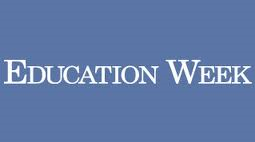Education Week: Excellence Gap Keeping Poor Students Out Of Gifted Classes
Poorest Students Often Miss Out on Gifted Classes

May 19, 2015
What does it take to find the country’s most promising, academically talented students?
In wealthier enclaves, where gifted education programs often flourish, it can be simply a matter of testing to cream the best from a pool of youngsters who have had high-quality early enrichment and academics.
But with more than half of public school students now coming from low-income families and deepening concentrations of poverty in many communities, standard screening and pullout programs may not be enough to find and support the most vulnerable talented students.
In response, more educators and researchers who work with gifted students are calling for another look at who is considered gifted and how schools can locate and support those students.
“I think there’s a significant shift going on in the field,” said Paula Olszewski-Kubilius, the director of the Center for Talent Development at Northwestern University in Evanston, Ill., and the past-president of the National Association for Gifted Children. “The field is really wrestling with whether to jettison the notion of giftedness as this fixed, inborn trait of IQ, and adopting the sense that giftedness is something malleable, that experience matters a lot, and we need to develop it.”
Thirty-six states require at least that districts identify students with high academic potential, according to the 2015 report “Equal Talents, Unequal Opportunities,” commissioned by the Leesburg, Va.-based Jack Kent Cooke Foundation—though not all those states require districts to serve gifted students. Of those, 28 audit or otherwise monitor gifted programs, and only 13 require a growth model or other indicator capable of measuring the academic progress of gifted students.
Click here to read the full article.